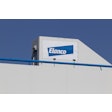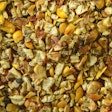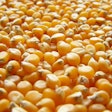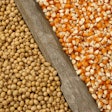NFU Scotland has welcomed new EU measures which will allow EU Member States to accept shipments of animal feed materials which include traces of not yet EU-approved GM material up to 0.1%.
The measures agreed upon by the EU’s Standing Committee on the Food Chain and Animal Health are intended stop shipments of feed material imported from third countries into the EU market from being turned back because of minute quantities of not-yet-approved GM grain. Previously, a zero-tolerance policy was in place. “Until now, Europe’s zero-tolerance approach had restricted feed imports from countries where new GM crops are widely grown, most notably in Argentina, Brazil and the United States,” said Peter Loggie, NFU Scotland’s pigs and poultry policy manager. “Even with thorough cleaning of the boats used for transporting materials, it is almost impossible to avoid trace contamination. Given that the EU needs to import almost 80% of its protein requirements for livestock from those countries, it is no wonder that UK farming unions have campaigned for years to introduce a low level of tolerance.”
Still, the NFUS said it remains to be seen whether the new measure will make a difference in import costs. “The percentage is a step in the right direction, but could still prove too low as the rocketing cost of shipping feed material from these countries and the bureaucratic hassle that entails when shipments are rejected has meant that third countries have begun developing markets elsewhere, largely in Asia, where livestock production is growing and where the process of gaining approval for new GM varieties is more rapid than the EU system,” said Loggie.













